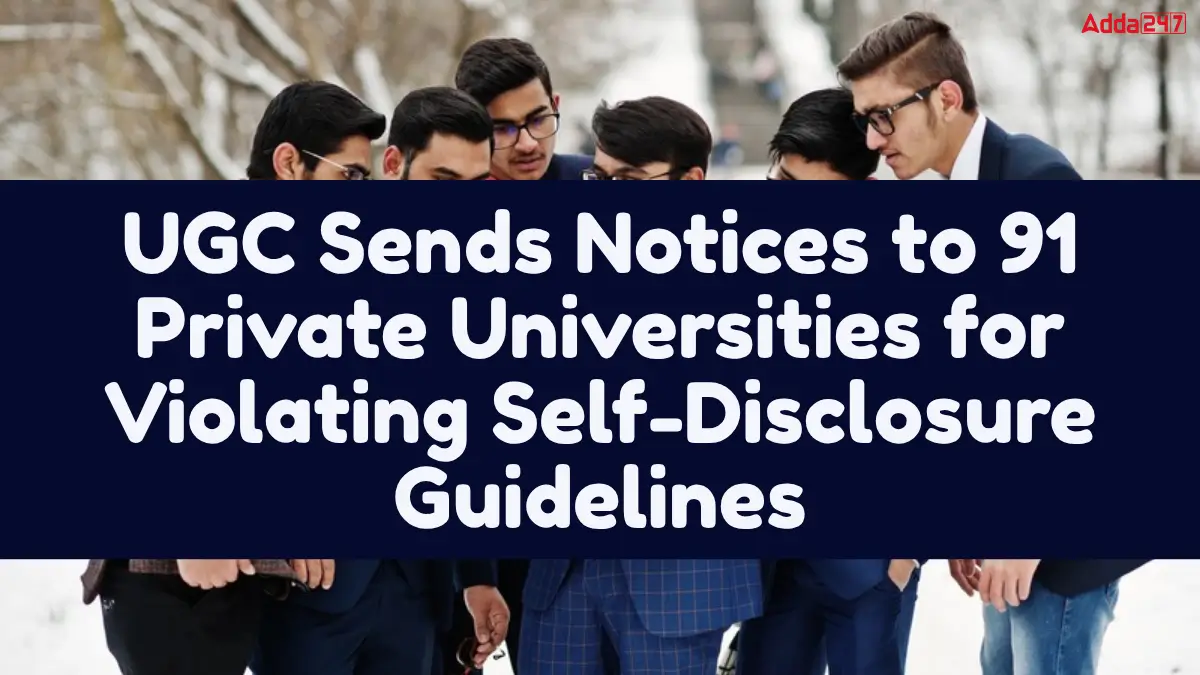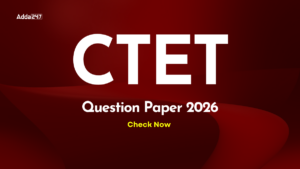Table of Contents
The University Grants Commission (UGC) has recently taken strict action against 91 private universities across India for failing to comply with the Public Self-Disclosure Guidelines issued in June 2024. Despite repeated reminders through emails and online meetings, these institutions did not submit required information under Section 13 of the UGC Act, 1956, nor did they upload public self-disclosure details on their official websites.
UGC Secretary Manish Joshi emphasized the importance of transparency, saying, “Universities must ensure that all relevant information is easily accessible to students and the public without registration or login.”
Latest Update on UGC Guidelines
The UGC released the Public Self-Disclosure Guidelines for Higher Education Institutions, 2024, on 10th June 2024. These guidelines are designed to enhance transparency and accountability in private higher education institutions. Despite multiple reminders, these measures were ignored by 91 universities, prompting UGC action.
Key updates include:
- Universities must maintain a fully functional website.
- All critical information should be easily accessible on the home page, without any need for registration or login.
- Websites must feature a search option for smooth navigation.
- Institutions are required to submit detailed information for inspection under Section 13 of the UGC Act, 1956.
- Soft copies of documents must be submitted in the prescribed format, duly attested by the Registrar.
- Completed formats and appendices should also be uploaded on the university website with a visible link on the home page.
What the UGC Rules Say
The UGC guidelines focus on public transparency and student access to information. The rules clearly state that any information must be accessible without registration and should include a search facility to help students navigate the website efficiently. Every higher education institution is expected to disclose key details such as:
- Governance and administrative structure
- Academic programs and syllabus
- Faculty details
- Fee structure and admission procedures
- Student support services and grievance redressal mechanisms
List of 91 Private Universities
The full list has been circulated by the UGC, urging universities to take immediate corrective action.
| List of 91 Private Universities | |
| 54 University List | Check Here |
| 37 University List | Check Here |
What is University Verdict?
The UGC has officially declared these 91 private universities as defaulters. The notice requires them to submit the missing information and update their websites with the public self-disclosure format. The regulator has been increasingly strict with private institutions, issuing 23 notices in July to universities for not appointing ombudspersons. Non-compliance could lead to further action, including penalties or restrictions on new admissions.
Why it Matters to Students
Transparency in higher education is crucial for students and parents. The UGC guidelines ensure that stakeholders can access important information regarding:
- Admission procedures
- Fee structures
- Program details
- Faculty qualifications
- Complaint resolution mechanisms
What Happens Next?
UGC has asked the defaulting universities to take corrective measures immediately. Officials warn that failure to comply may result in:
- Restrictions on new admissions
- Regulatory penalties
- Public disclosure of non-compliant universities




 CTET Question Paper 2026 Out, Download S...
CTET Question Paper 2026 Out, Download S...
 UP B.Ed Application Form 2026 Active, Ap...
UP B.Ed Application Form 2026 Active, Ap...
 Must-Know Science Topics For Bihar DElEd...
Must-Know Science Topics For Bihar DElEd...













